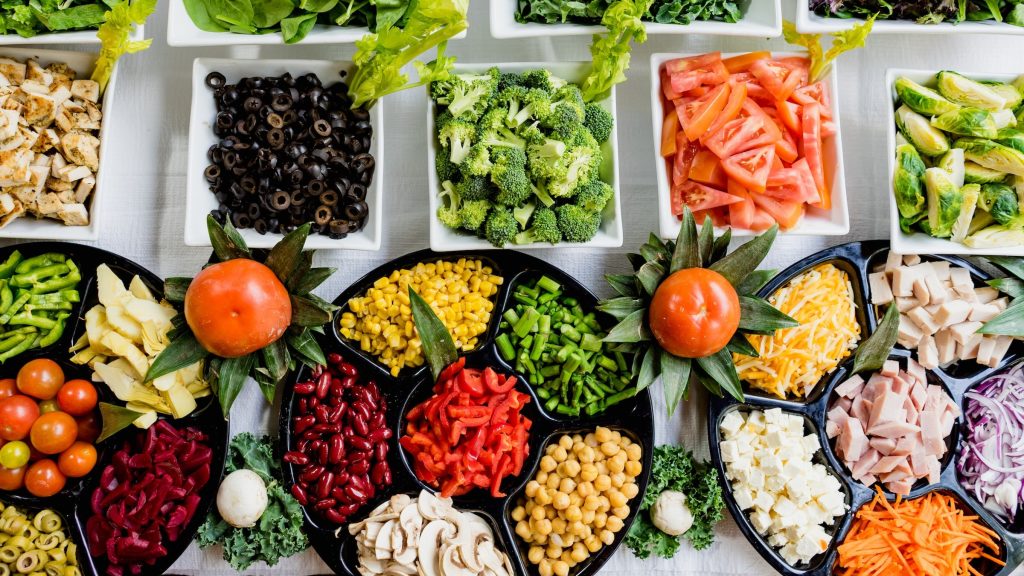Introduction:
Maintaining a healthy digestive system is crucial for overall well-being. One of the most effective ways to promote digestive health is by incorporating a variety of vegetables into your diet. Vegetables are not only packed with essential nutrients, but they also play a vital role in supporting digestion. In this article “Unveiling 20 Impacts of Vegetables on Your Digestive System”, we will delve into the impact of vegetables on your digestive system, highlighting their benefits and providing valuable insights for optimal digestive health.
-
Fiber Content:
- Vegetables are an excellent source of dietary fiber, which is essential for proper digestion.
- Fiber aids in regular bowel movements, preventing constipation and promoting a healthy digestive system.
- High-fiber vegetables, such as broccoli, Brussels sprouts, and carrots, help maintain a healthy weight and reduce the risk of developing gastrointestinal disorders.
-
Gut Health:
- Vegetables contain prebiotic fibers that nourish the beneficial bacteria in your gut.
- These beneficial bacteria, also known as probiotics, promote a healthy gut microbiome.
- A diverse and balanced gut microbiome enhances digestion, nutrient absorption, and immune function.
-
Digestive Enzymes:
- Certain vegetables, such as celery and ginger, possess natural digestive enzymes that facilitate the breakdown of food.
- These enzymes assist in the digestion of proteins, carbohydrates, and fats, reducing the strain on your digestive system.
-
Hydration:
- Many vegetables have high water content, contributing to proper hydration, which is essential for digestion.
- Adequate hydration helps soften stools, preventing issues like constipation and promoting regular bowel movements.
-
Antioxidant and Anti-inflammatory Properties:
- Vegetables are rich in antioxidants and anti-inflammatory compounds, such as vitamins A, C, and E, and phytonutrients.
- These substances protect the digestive system from oxidative stress and inflammation, reducing the risk of digestive disorders.
-
Digestive Disorders Prevention:
- Regular consumption of vegetables has been associated with a lower risk of various digestive disorders, including diverticulitis, irritable bowel syndrome (IBS), and colorectal cancer.
- Cruciferous vegetables like cabbage, cauliflower, and kale contain compounds that may have protective effects against colon cancer.
-
Vegetable Recommendations:
- Include a variety of vegetables in your diet, such as leafy greens, cruciferous vegetables, bell peppers, tomatoes, and root vegetables.
- Aim for at least 2-3 servings of vegetables per meal, ensuring a colorful and diverse plate.
- Experiment with different cooking methods, such as steaming, roasting, and stir-frying, to preserve nutrient content and enhance flavors.
-
Promoting Weight Management:
- Vegetables are low in calories and high in fiber, making them an ideal choice for weight management.
- Their high fiber content provides a feeling of fullness, reducing the likelihood of overeating and promoting weight loss or maintenance.
-
Alleviating Digestive Discomfort:
- Certain vegetables, such as ginger and peppermint, have natural soothing properties that can alleviate digestive discomfort, including bloating, gas, and indigestion.
- Incorporating these vegetables into your meals or consuming them in the form of herbal teas can help calm your digestive system.
-
Supporting Liver Health:
- Cruciferous vegetables, such as broccoli, Brussels sprouts, and kale, contain compounds that support liver detoxification.
- These vegetables assist in eliminating toxins from the body, promoting a healthy liver and optimal digestive function.

-
Enhancing Nutrient Absorption:
- The presence of vegetables in your meals can enhance the absorption of nutrients from other foods.
- Some vitamins and minerals require specific conditions for absorption, and the fiber and compounds present in vegetables can create an optimal environment for nutrient absorption.
-
Balancing Gut Microbiome:
- Vegetables contain a diverse range of fibers that nourish different strains of beneficial bacteria in the gut.
- This diversity helps maintain a balanced gut microbiome, which is essential for optimal digestion, nutrient absorption, and overall health.
-
Reducing the Risk of Gallstones:
- A diet rich in vegetables, particularly those high in insoluble fiber like broccoli and spinach, has been associated with a reduced risk of developing gallstones.
- These vegetables assist in regulating cholesterol levels and promoting healthy bile flow, reducing the likelihood of gallstone formation.
-
Managing Blood Sugar Levels:
- Non-starchy vegetables, such as leafy greens, cucumbers, and bell peppers, have a low glycemic index and can help regulate blood sugar levels.
- Including these vegetables in meals can assist in preventing blood sugar spikes and managing conditions like diabetes.
-
Diversity and Variety:
- Incorporating a wide variety of vegetables in your diet ensures a diverse array of nutrients, antioxidants, and phytochemicals, benefiting your digestive system and overall health.
- Aim to consume vegetables of different colors to obtain a broad range of nutrients and antioxidants.
-
Cooking Tips for Maximum Digestive Benefits:
- To maximize the digestive benefits of vegetables, consider incorporating the following cooking tips:
- Lightly steam or sauté vegetables to retain their nutrients and aid in digestion.
- Avoid overcooking vegetables, as excessive heat can lead to nutrient loss.
- Opt for healthier cooking oils, such as olive oil or coconut oil, to enhance the absorption of fat-soluble vitamins present in vegetables.
- Add herbs and spices like turmeric, cumin, and fennel to your vegetable dishes for their digestion-enhancing properties.
-
Fermented Vegetables:
- Including fermented vegetables, such as sauerkraut, kimchi, and pickles, in your diet can promote a healthy gut.
- Fermented vegetables are rich in probiotics, which support digestion and improve the balance of gut bacteria.
- Start with small portions and gradually increase your intake to allow your digestive system to adapt.
-
Consider Individual Tolerance:
- While vegetables offer numerous digestive benefits, it’s essential to consider individual tolerance.
- Some people may experience digestive discomfort or gas when consuming certain vegetables.
- Pay attention to your body’s response and adjust your vegetable choices accordingly, focusing on those that suit your digestive system.
-
Organic and Clean Sourcing:
- Whenever possible, choose organic vegetables to minimize exposure to pesticides and chemicals.
- Clean and wash vegetables thoroughly to remove any residual contaminants that may affect digestion.
-
Seek Professional Guidance:
- If you have specific digestive concerns or medical conditions, consult a healthcare professional or a registered dietitian for personalized advice.
- They can provide tailored recommendations and guidance based on your unique needs.
Conclusion:
Incorporating a wide variety of vegetables, following proper cooking techniques, and considering individual tolerance are key to reaping the full digestive benefits of vegetables. By adopting a vegetable-rich diet and implementing these tips, you can support your digestive system, enhance nutrient absorption, and promote overall digestive health. Embrace the power of vegetables and nourish your body from the inside out.
Keywords:
vegetables, digestive system, impact, fiber, gut health, digestive enzymes, hydration, antioxidants, anti-inflammatory, digestive disorders prevention, weight management, digestive discomfort, liver health, nutrient absorption, gallstones, blood sugar levels, diversity, cooking tips, fermented vegetables, individual tolerance, organic sourcing, professional guidance.
Revised paragraph with keywords: Incorporating a wide variety of vegetables into your diet can have a significant impact on your digestive system. Vegetables are rich in fiber, promoting proper digestion and preventing digestive disorders. They also support gut health by nourishing the beneficial bacteria in your gut. The presence of digestive enzymes in certain vegetables aids in the breakdown of food, while their high water content ensures hydration and softens stools. With their antioxidant and anti-inflammatory properties, vegetables protect your digestive system from oxidative stress and reduce the risk of digestive disorders. Additionally, vegetables assist in weight management, alleviate digestive discomfort, support liver health, enhance nutrient absorption, reduce the risk of gallstones, and help regulate blood sugar levels. Embracing a diverse range of vegetables and following cooking tips can maximize their digestive benefits. Including fermented vegetables and considering individual tolerance, organic sourcing, and seeking professional guidance are also essential aspects of a vegetable-centric approach to digestive health.
For more please Click Here.








